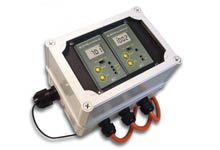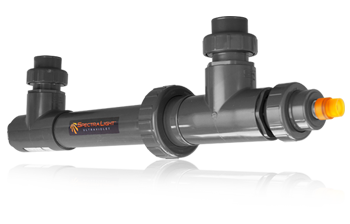Shopping Cart
All orders qualify for risk-free 30 day trial & complimentary US shipping!
-- No items so far --
Total:
0
Support
Need help? Our Pool Experts are here to help.
All orders qualify for risk-free 30 day trial & complimentary US shipping!
-- No items so far --
Total:
0
Need help? Our Pool Experts are here to help.
Imagine getting your pool water tested and adjusted every minute, 24 hours per day, 365 days per year. Well, it’s possible with advanced pool controllers. Just about every new public pool is built with an automated pool controller that makes life much easier for the operators. But pool controllers are very rare on backyard swimming pools. Let’s face it –the pool industry hasn’t been on top of technology for the past 10 years. But that’s about to change. Now all pool owners can put their pool on autopilot.

There are two types of pool controllers in the pool industry. The first type is a pool equipment controller. While pool equipment controllers serve a useful purpose, they cannot test water quality or adjust water quality parameters. Pool equipment controllers simply control electric equipment like pumps, heaters, solar systems, automatic pool vacuums, and lighting. The second type of pool controller deals with water chemistry. Advanced pool controllers feature microprocessors that test and adjust the water quality parameters every single minute, year around. Digital pool controllers focus on critical parameters for water quality like pH and chlorine. After testing the pH and chlorine levels, adjustments are automatically made to water chemistry. This advanced system uses special solution pumps and storage tanks to deliver solutions in a precise dosage.
Your typical backyard pool feeds chlorine into the pool water with either a chlorinator or chlorine generator, or more commonly known as, a salt water pool. These systems are very crude, and do not have a feedback system that allows the unit to monitor and adjust the chlorine levels. This means that the pool either has too much chlorine or not enough chlorine more than 90% of the time. If the chorine is too low, conditions are not safe for swimmers. If the chlorine is too high, the pool owners will overspend on chemicals. And if significantly too much chlorine is added, the pool will be dangerous for swimmers.
pH is the single most important parameter in water quality. But pH rarely gets the attention it deserves. How important is pH? If the pH of a pool or spa is allowed to drift above 7.8, say to 8.3, chlorine loses nearly all of its ability to kill microorganisms and pathogens. pH control can easily be monitored and adjusted with a pool controller. The result is less chemicals and better water quality.
World-class aquatic centers always have two pieces of valuable equipment - a pool controller and an ultraviolet pool system. Using technology developed for use in drinking water plants, ultraviolet pool systems emit a high-intensity ultraviolet light that destroys all types of microorganisms including bacteria, algae, viruses, cysts and even chemical by-products like chloramines. UV systems are very effective, according to the Professional Pool Operators of America.
There are a number of alternatives for swimming pool sanitation. Compare UV to chlorine, ozone, ionization and other technologies here.
